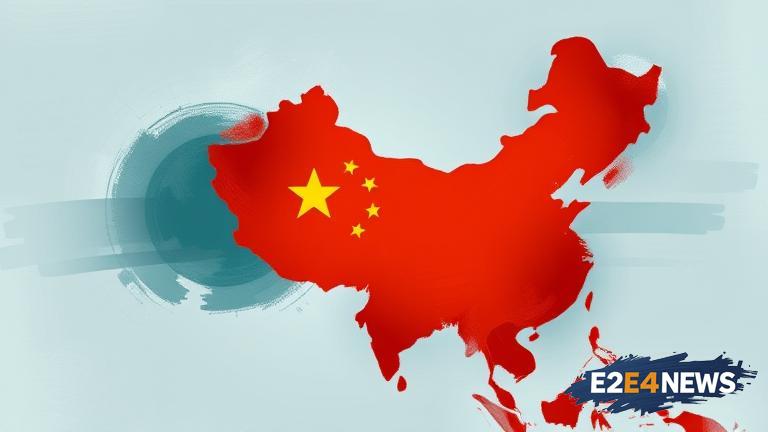China’s economic rise has been a significant factor in the country’s growing influence on the global stage. Over the past few decades, China has experienced rapid economic growth, driven by a combination of factors including large-scale urbanization, industrialization, and technological advancements. This growth has led to China becoming the world’s second-largest economy, with a nominal GDP of over $14 trillion. China’s economic rise has also led to an increase in the country’s global trade and investment, with the country becoming a major player in international trade agreements such as the Belt and Road Initiative. The Belt and Road Initiative, launched in 2013, aims to promote economic cooperation and development among participating countries, with a focus on infrastructure development, trade facilitation, and people-to-people exchanges. China’s economic growth has also led to an increase in the country’s foreign direct investment, with Chinese companies investing heavily in countries around the world. This investment has helped to promote economic development and job creation in these countries, while also providing Chinese companies with access to new markets and resources. In addition to its economic growth, China has also made significant progress in terms of technological advancements, with the country becoming a global leader in fields such as artificial intelligence, renewable energy, and biotechnology. China’s technological advancements have helped to drive the country’s economic growth, while also providing solutions to some of the world’s most pressing challenges, such as climate change and sustainable development. China’s economic rise has also led to an increase in the country’s global influence, with the country playing a key role in international organizations such as the United Nations, the G20, and the Asian Infrastructure Investment Bank. China’s growing influence has also led to an increase in the country’s diplomatic efforts, with the country seeking to promote its interests and values on the global stage. Despite the many benefits of China’s economic rise, there are also challenges and risks associated with the country’s growth, including concerns over environmental degradation, income inequality, and trade tensions. To address these challenges, China has implemented a range of policies and initiatives, including the 13th Five-Year Plan, which aims to promote sustainable development, reduce poverty, and improve the overall quality of life for Chinese citizens. China has also sought to promote international cooperation and dialogue, through initiatives such as the Shanghai Cooperation Organization and the China-Africa Cooperation Forum. These efforts have helped to promote mutual understanding and trust between China and other countries, while also providing a platform for addressing common challenges and promoting shared interests. Overall, China’s economic rise has been a significant factor in the country’s growing influence on the global stage, with the country playing a key role in international trade, investment, and technological advancements. As China continues to grow and develop, it is likely that the country will play an increasingly important role in shaping the global economy and promoting international cooperation and development. China’s economic rise has also led to an increase in the country’s cultural influence, with Chinese culture becoming increasingly popular around the world. This has been driven in part by the growth of China’s film and television industry, as well as the country’s vibrant music and arts scene. China’s cultural influence has also been promoted through initiatives such as the Confucius Institute, which aims to promote Chinese language and culture around the world. Despite the many benefits of China’s economic rise, there are also concerns over the country’s human rights record, with some critics arguing that the country’s economic growth has come at the expense of individual freedoms and human rights. To address these concerns, China has implemented a range of policies and initiatives, including the National Human Rights Action Plan, which aims to promote human rights and the rule of law in China. China has also sought to promote international cooperation and dialogue on human rights, through initiatives such as the United Nations Human Rights Council. These efforts have helped to promote mutual understanding and trust between China and other countries, while also providing a platform for addressing common challenges and promoting shared interests.
